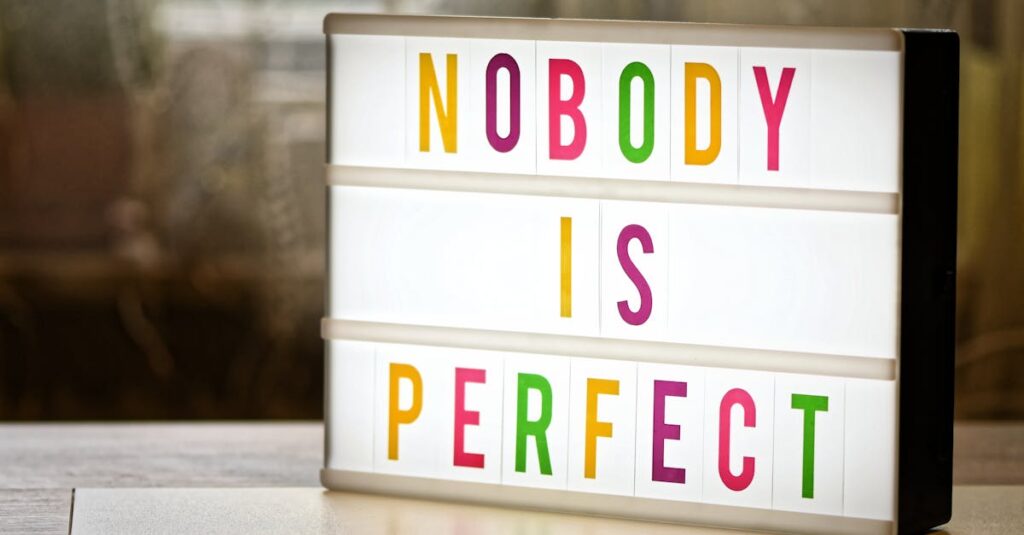If you’re raising a child who holds themselves to impossibly high standards, you may have already noticed the signs: stress before school projects, tears over a minor mistake, or intense frustration when things don’t go exactly as planned. These children are often described as “driven,” “hardworking,” or “high-achieving” — all of which can be true and admirable. But underneath that drive is often a quiet fear: What if I’m not good enough?
At first glance, perfectionism might seem like a good problem to have. A child who wants to succeed, who puts in extra effort, who strives to be the best — what parent wouldn’t be proud? But perfectionism has a hidden cost. When children equate their worth with flawless performance, even their best efforts can feel like failure. They set a bar so high that it becomes unattainable, and the weight of always trying to reach it can become overwhelming.
When “Doing Well” Still Feels Like “Not Enough”
A perfectionistic child may come home with a 92 on a test and feel crushed because they expected a 100. They may score a goal in soccer and still obsess over the one they missed. The message they internalize isn’t “Look how far I’ve come,”but rather, “I didn’t do it perfectly, so I’m not proud.” And that’s a painful place to live.
These children aren’t just being hard on themselves — they’re caught in a trap. If they don’t allow themselves to make mistakes, they never feel the joy of progress, only the sting of imperfection.
Teaching Progress Over Perfection
One of the most powerful things you can do as a parent is help your child develop a growth mindset — the belief that ability and success come from effort, learning, and time, not from innate perfection. Remind your child that mistakes are part of the process, and that learning happens because we mess up, not in spite of it.
Sometimes, we even need to celebrate the mistake.
I remember a time when I received a disappointing grade on a test in middle school. I was devastated. I had studied hard, and I felt like I had let myself — and my parents — down. But instead of being upset, my parents surprised me by taking me out for ice cream. They told me, “We’re proud of how much you care, and we know you’ll figure out how to get your grade up if you want to. But right now, you deserve a break.” That simple gesture sent a powerful message to me. I learned that my value wasn’t in the grade. It was in my effort, my character, and my willingness to keep going. I learned that sometimes it was okay to give myself a break.
How You Can Support Your Perfectionistic Child
Here are a few ways to support your child if they’re struggling under the pressure of perfection:
- Acknowledge their effort, not just their outcome. Praise the hard work, the time spent practicing, the resilience after disappointment — not just the A+ or the win.
- Model self-compassion. Let your child see you make mistakes — and how you handle them with humor or grace. Say things like, “Well, that didn’t go as planned. I guess I’ll try a different approach next time.”
- Normalize failure. Talk about your own setbacks. Share stories of people they admire who failed before they succeeded. Make “failure” a regular, human part of growth.
- Celebrate “imperfect” moments. When your child gets something wrong, use it as a teachable — and connectable — moment. Sometimes, go out for ice cream anyway.
- Ask curious, open-ended questions. Instead of “What did you get on the test?” try “How did the test go? What felt hard or easy about it?”
- Be a safe place. Let them know they don’t have to be perfect to be loved, supported, or celebrated. Sometimes the most powerful words you can say are: “You don’t have to do it perfectly. I’m proud of you no matter what.”
The Bigger Picture
Helping your child learn that perfection is not the goal — and never has to be — is one of the most powerful gifts you can give them. When they believe that mistakes are part of growth and that they are valuable even when they fall short, they’ll be more resilient, more confident, and ultimately more fulfilled.
So the next time your child doesn’t get it exactly right, take a deep breath, meet them with warmth, and maybe even suggest a little celebration. Sometimes, the best thing we can do is show them that being human is something to be proud of.


